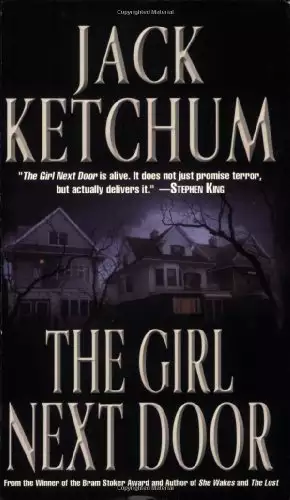ONE
You think you know about pain?
Talk to my second wife. She does. Or she thinks she does.
She says that once when she was nineteen or twenty she got between a couple of cats fighting – her own cat and a neighbor’s – and one of them went at her, climbed her like a tree, tore gashes out of her thighs and breasts and belly that you still can see today, scared her so badly she fell back down her again, all tooth and claw and spitting fury. Thirty-si stitches I think she said she got. And a fever that lasted days.
My second wife says that’s pain.
She doesn’t know shit, that woman.
Evelyn, my first wife, has maybe gotten closer.
There’s an image that haunts her.
She is driving down a rain-slick highwayon a hot summer morning in a rented Volvo, her lover by her side, driving slowly and carefully because she knows how treacherous new rain on hot streets can be, when a Volkswagen passes her and fishtails into her lane. Its rear bumper with the “Live Free or Die” plates slides over and kisses her grille. Almost gently. The rain does the rest. The Volvo reels, swerves, glides over an embankment and suddenly she and her lover are tumbling through space, they are weightless and turning, and up is down and then up and then down again. At some point the steering wheel breaks her shoulder. The rearview mirror cracks her wrist.
The the rolling stops and she’s staring up at the gas pedal overhead. She looks for her lover but he isn’t there anymore; he’s disappeared, it’s magic. She finds the door on the driver’s side and opens it, crawls out onto wet grass, stands and peers through the rain. And this is the image that haunts her – a man like a sack of blood, flayed, skinned alive, lying in front of the car in a spray of glass spackled red.
This sack is her lover.
And this is why she’s closer. Even though she blocks what she knows – even though she sleeps nights.
She knows that pain is not just a matter of hurting, of her own startled body complaining at some invasion of the flesh.
Pain can work from the outside in.
I mean that sometimes what you see is pain. Pain in its cruelest, purest form. Without drugs or sleep or even shock or coma to dull it for you
You see it and you take it in. And then it’s you.
You’re a host to a long white worm that gnaws and eats, growing, filling your intestines until finally you cough one morning and up comes the blind pale head of the thing sliding from your mouth like a second tongue.
No, my wives don’t know about that. Not exactly. Though Evelyn is close.
But I do.
You’ll have to trust me on that for starters.
I have for a very long time.
I try to remember that we were all kids when these things happened, just kids, barely out of our Davy Crockett coonskin caps for God’s sake, not fully formed. It’s much too hard to believe that what I am today is what I was then except hidden now and disguised. Kids get second chances. I like to think I’m using mine.
Though after two divorces, bad ones, the worm is apt to gnaw a little.
Still I like to remember that it was the Fifties, a period of strange repressions, secrets, hysteria. I think about Joe McCarthy, though I barely remember thinking of him at all back then except to wonder what it was that would make my father race home from work every day to catch the committee hearings on TV. I think about the Cold War. About air-raid drills in the school basement and films we saw of atomic testing – department-store mannequins imploding, blown across mockup living rooms, disintegrating, burning. About copies of Playboy and Man’s Action hidden in wax paper back by the brook, so moldy after a while that you hated to touch them. I think about Elvis being denounced by the Reverend Deitz at Grace Lutheran Church when I was ten and the rock ‘n’ roll riots at Alan Freed’s shows at the Paramount.
I say to myself something weird was happening, some great American boil about to burst. That it was happening all over, not just at Ruth’s house but everywhere.
And sometimes that makes it easier.
What we did.
I’m forty-one now. Born in 1946, seventeen months to the day after we dropped the Bomb on Hiroshima.
Matisse had just turned eighty.
I make a hundred fifty grand a year, working on the floor on Wall Street. Two marriages, no kids. A home in Rye and a company apartment in the city. Most places I go I use limousines, though in Rye I drive a blue Mercedes.
It may be that I’m about to marry again. The woman I love knows nothing of what I’m writing here – nor did my other wives – and I don’t really know if I ever mean to tell her. Why should I? I’m successful, even-tempered, generous, a careful and considerate lover.
And nothing in my life has been right since the summer of 1958, when Ruth and Donny and Willie and all the rest of us met Meg Loughlin and her sister Susan. ...
We hope you are enjoying the book so far. To continue reading...
Copyright © 2026 All Rights Reserved


